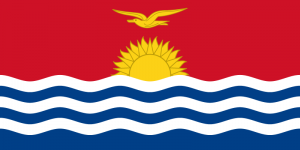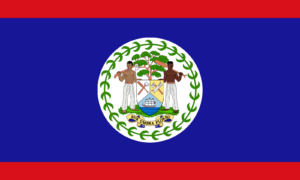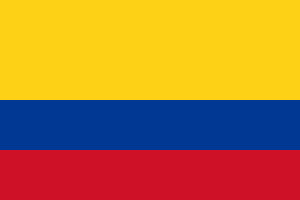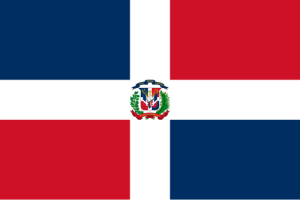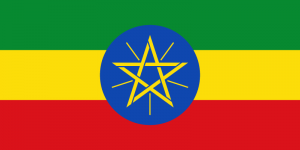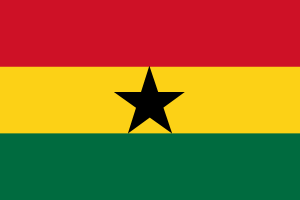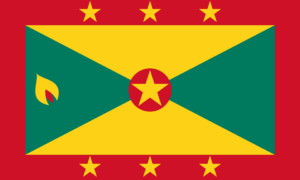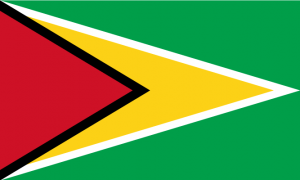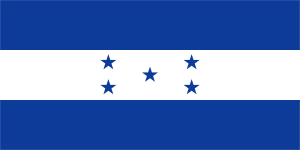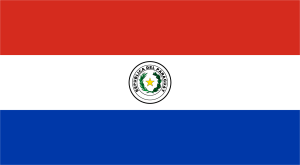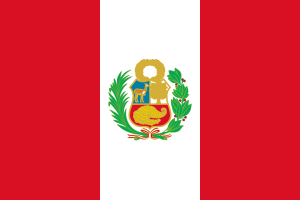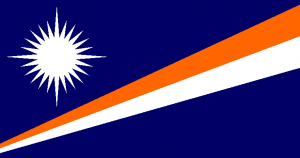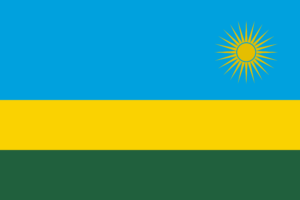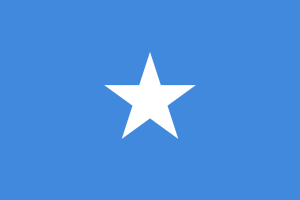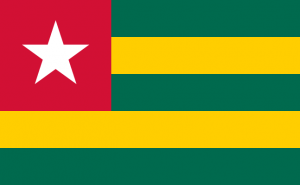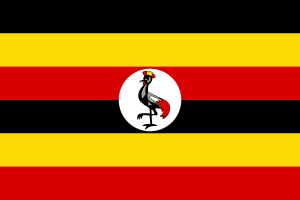OUR PROGRAM
The NAP Global Network worked with the Office of Te Beretitenti (President) (OB) and the Kiribati National Expert Group on Climate Change and Disaster Risk Management (KNEG) from 2017 to 2020 on the Kiribati Joint Implementation Plan on Climate Change and Disaster Risk Management (KJIP), which serves as Kiribati’s NAP document. It includes a 9-year plan, ending in 2028, focused on enhancing the sustainability of the country’s development and resilience to the impacts of climate change.
We worked with the KNEG to collect climate change information at the local level through a standardized approach called the Integrated Vulnerability Assessment (IVA). Our goal was to help inform development decisions at the local, sectoral, and national levels.
In 2024, the NAP Global Network and OB established a new in-country support program focused on supporting the transition from planning to implementation in the NAP process. The program focuses on building capacity for national actors in adaptation led by a team of embedded advisors, enhancing approaches to IVA, leading the process to update and train on the Kiribati IVA (KIVA) Database, enhancing methods for monitoring, evaluation, and learning (MEL) for the KJIP, and further activities to accelerate the transition from planning to implementation of the KJIP.
FEATURED
In 2020, the Office of the President released the first evaluation of the progress made in implementing the 12 prioritized strategies in the KJIP, which are the responsibility of 19 lead agencies, through its KJIP Implementation Progress Report 2014 – 2018.
2025
- Embedded Advisor support: NAP Global Network sustained in-country support through a team of I-Kiribati adaptation advisors, assisting the OB and KNEG with advancing adaptation priorities to accelerate Kiribati’s transition from climate planning to implementation.
- Training on concept note and proposal development: Facilitated training on concept note and proposal development, specifically tailored for small grants applications at the community level, informed by IVAs. This training aimed to equip national actors with the skills to articulate project ideas for climate finance.
- MEL self-paced training (short course): Embedded adaptation advisors engaged in a new online self-paced short course on MEL for adaptation planning, with ongoing support from the NAP GN MEL Team. This course aligns with the broader objective of strengthening the KJIP MEL framework.
- Review and revision of IVA approach and methodology: Consultation and workshops were convened to update the IVA methodology, including updating questionnaires for all eight sectors and integrating the human security and livelihood assets approach.
- Trialling new IVA methodologies and adjusting established methods: Trialling was conducted on the remaining islands to enhance accuracy and relevance, building on lessons from previous assessments. This activity is part of the ongoing effort to expand IVA coverage across Kiribati.
- KJIP progress report: National consultations and a review process were undertaken to produce an updated KJIP Progress Report, informing a further revision of the KJIP (toward a third iteration of the plan).
- KJIP MEL System: Supported implementation of the KJIP MEL system, building on its framework, the 12 prioritized strategies, and by tagging climate actions across Kiribati. This includes operationalizing the MEL Framework and developing KJIP progress reports and scorecards.
- The KiriResilience podcast: Launched a national podcast, serving as an official platform under the KNEG to increase public awareness of the KJIP and its implementation, highlighting adaptation efforts and priorities across sectors. This monthly podcast aims to educate the public and showcase local adaptation success stories, contributing to the transition from planning to implementation.
2024
- Capacity building and embedded advisor support: Initiated an in-country support program, which included embedded support through adaptation advisors and an international consultant who developed and delivered national capacity-building trainings.
- MEL Framework: Building upon the existing 2020 Draft MEL Framework for the KJIP, 2024 focused on developing the KJIP MEL Framework and Process Implementation Plan (MELPIP). This involved scoping priority sub-projects for MEL system implementation and preparing for the KJIP Progress Report. The MELPIP Phase #1 was completed in 2024.
- Communications and Capacity Building Plan: The Plan aimed to align with the KJIP’s Detailed Action Matrix priorities and strengthen stakeholders’ capacity for implementation. A draft was finalized.
- KIVA Database: Undertook activities to update and provide training on the database, which serves as a key platform for national vulnerability data, including spearheading improvements to its functionalities and linkages with related data sources and developing training modules and a training report for its use.
- IVA: Efforts concentrated on reviewing and improving existing IVA approaches and methodologies to achieve standardization and consistency. This involved updating IVA tools, such as questionnaires, to better incorporate cross-cutting topics like gender and social inclusion, including support for completing Participatory Rapid Appraisals, updating Household Surveys within the KIVA database, and developing recommendations for a National IVA Plan.
- KNEG Training Registry: Development of a KNEG Training Registry as a sub-project under KIVA Database enhancements. This registry was intended to track training activities and participants to monitor capacity-building progress and identify skill gaps.
- IVA Data Dashboards: Developed data dashboards to present vulnerability data in user-friendly formats for national discussions and reporting.
2020
- Infographic | Kiribati: Adaptation to Climate Change for All: Outlined the five new tools that the Government of Kiribati developed over the past two years in order to support the use of the Kiribati Integrated Vulnerability Assessment (KIVA) and make sure the needs and vulnerabilities of everyone is included in national adaptation actions.
- Virtual Learning Event | Monitoring and Evaluation (M&E) for National Adaptation in Pacific Small Island Developing States: Provided a platform for Pacific Small Island Developing States (SIDS) to share perspectives, experiences and lessons learned on monitoring and evaluation (M&E) of national adaptation. Participants included representatives from Kiribati.
- IVA Field Methodology Guide: A guidebook is provided to the surveyors involved in data collection for conducting Integrated (multi-sector) Vulnerability Assessment (IVA) that outlines the approach used to capture community-level vulnerability information to inform climate adaptation planning.
- KJIP Implementation Progress Report 2014 – 2018: The Office of the President released the first evaluation of the progress made in implementing the 12 prioritized strategies in the KJIP, which are the responsibility of 19 lead agencies.
2019
- Kiribati unveils updated plan for managing climate change and disaster risks during Climate Week: The Government of the Republic of Kiribati launched its revised Joint Implementation Plan for Climate Change and Disaster Risk Management (KJIP), setting out its ambitions for building Kiribati’s resilience to climate change impacts.
- Briefing Note | How IVAs Support NAP Processes in the Pacific Region: Several Pacific island countries have chosen to use integrated vulnerability assessments (IVAs) to capture and incorporate community-level vulnerability information into their NAP processes.
- Video | The Framing of Gender Issues Matters: Kiribati integrated gender equality considerations in its response to climate change.
- Revised field methodology for climate vulnerability assessments: The official Household Survey Questionnaire (and associated tablet applications) is revised to account for emerging lessons learned.
- Branding for climate adaptation: The Office of the President developed branding guidelines to provide a visual identity and raise the profile of climate adaptation at the national level.
- Revised NAP document: The President of Kiribati and its ministers endorsed the revised KJIP 2019-2028, which strengthens climate adaptation policy-making and maintains high-level political support for the NAP process.
- KNEG trainings and meetings: The Office of the President strengthened the coordination of climate adaptation at the national level through the continuous involvement of the KNEG in the NAP process.
2018
- Capacity strengthening: The Office of the President hired four new staff to support its NAP process; one of which became a permanent position in September 2019.
- 2014 NAP document review and update: Revision conducted to ensure a higher quality NAP document that aligns with the most recent national strategic documents and gender analysis.
2017
- Gender analysis: The Office of the President and the KNEG received recommendations on ways to integrate gender considerations in the country’s NAP process, including in the revision of the 2014 NAP document.
- Climate vulnerability data collection: Tablets used for climate vulnerability data collection at community level, as part of the rolling out of the Integrated Vulnerability Assessment (IVA), to ensure consistency and accuracy of data gathering, reduce data entry work, improve data storage and make information more rapidly available to key actors.
- Kiribati Integrated Vulnerability Assessment (KIVA) database: The Office of the President established an online platform that hosts data and information on climate change vulnerability and adaptation in Kiribati at the national, sectoral, island and village levels.
